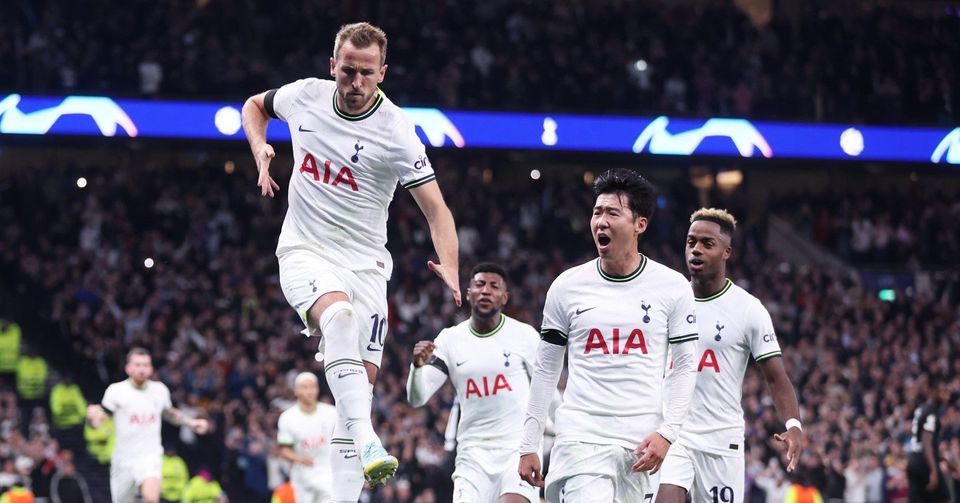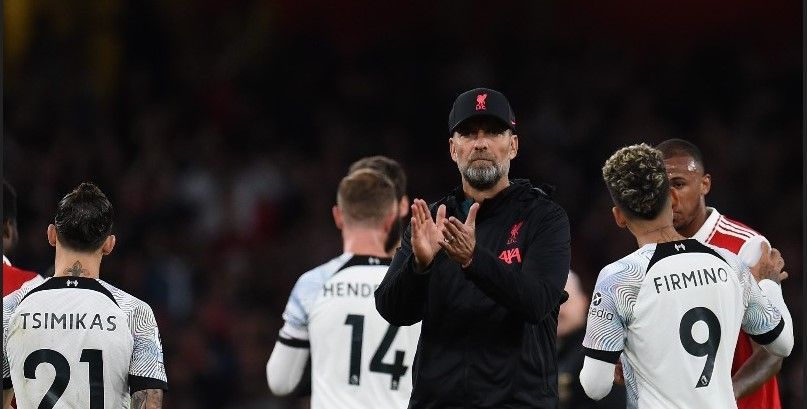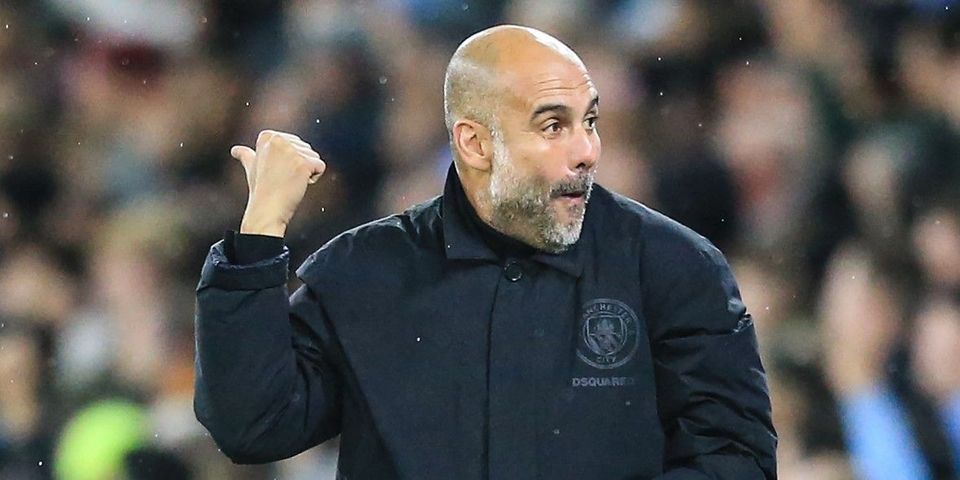Barcelona in 1992; The Dream Team capital of the world.
1992 provided us with a quirk of history. Barcelona, its capital, saw the convergence of two historic teams; the 1992 US Men's Olympic Basketball team and Johan Cruyff's Barcelona. Both known as the Dream Team in their respective sports, their influence is still felt today.
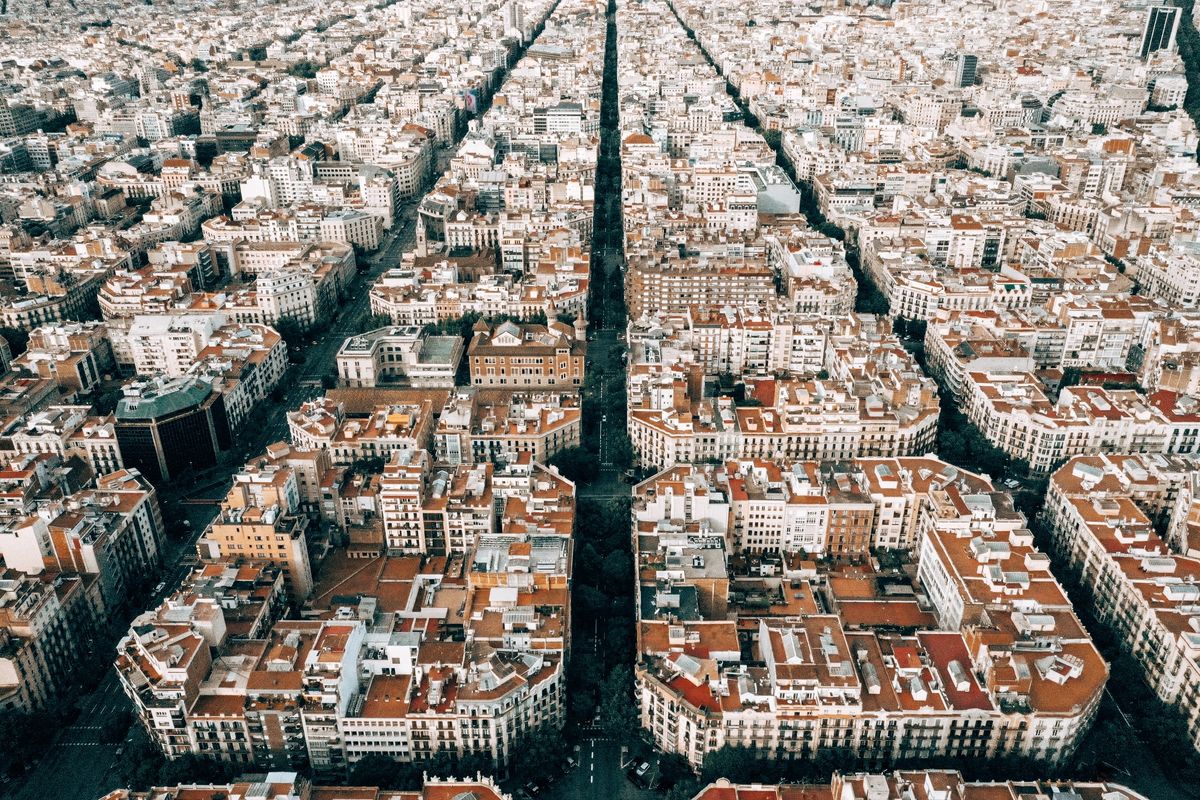
1992 provided us with a quirk of history. Barcelona, its capital, saw the convergence of two historic teams; the 1992 US Men's Olympic Basketball team and Johan Cruyff's Barcelona. Both known as the Dream Team in their respective sports, their influence is still felt today. What was it about Barcelona in 1992? Why were they anointed with the tag? Who came first? Were there any interesting connections between them?
It's hard to nail down the origin or first usage of the term Dream Team. Its meaning is clear, basically a team consisting of elite parts coming together to create an exponentially greater whole. Super Team has become its modern offspring in the basketball lexicon because the tag Dream Team is so heavily associated with that Olympic squad of 1992. The US Men's Basketball team of 2008 were dubbed the Redeem Team, an obvious play on their illustrious predecessors and a clear nod to their objective to win back the gold – I'm a big fan of US sports team branding. To go with the 1992 US Men's Basketball Team and Cruyff's Barcelona, Pep's Barcelona were also bestowed the honour after their 2011 Champions League win. In truth, the term is so flexible it has often been used in a non-sporting context. Possibly most famously in 1994 and the trial of OJ Simpson. His defence, consisting of Johnny Cochrane, Alan Dershowitz, and F.Lee Bailey, was a panoply of the nations best defence lawyers – naturally, the press ordained them with the immortal moniker. It's clear that its usage definitely spiked in the years after 191992, and it seems to have faded out of the sporting glossary altogether.
Much of the wealth of information we have on the 1992 US Men's basketball team comes from Jack McCallum and his fantastic book, Dream team: How Michael, Magic, Larry, Charles, and the Greatest Team of All Time Conquered the World and Changed the Game of Basketball Forever. The former Sports Illustrated journalist can reasonably be credited with first calling this collection of greats a Dream Team in his SI cover of 1991. McCallum gives an overview of some of the books best bits in his recent podcast series, The Dream Team Tapes; definitely worth a listen.
In my estimation, great teams are deified because they are the first ones to do something. Whether they are anointed during their career or after the fact, the clearest similarity all revered 'greatest of all time' teams share is a maiden triumph for that club, group, or nation. For the US Men's Basketball team 1992, they were the first American professional basketballers to represent their country at the Olympics. Until that point, the US has been more than happy to send college students to the Games, dominate the competition and hoover up gold medals. Before 1988, they had only experienced 1 loss at the Olympics. That all changed in Seoul, South Korea, when a defeat to the Soviet Union left them competing in the bronze medal match for the first time. There were some notable names in that 1988 US team, David Robinson and Danny Manning both featured. There are a few sports at the Olympics that do not showcase the pinnacle of their respective game – think Football or Boxing, where amateurs or young players are given the lion share of the places. Basketball was basically the same until 1988. It would also be naïve to ignore the socio-political climate of the day. Although the cold war was reaching its closing phase, there was, and still is, great animus between the USA and Russia, then the USSR. Many in the US struggled to swallow the sight of losing to the Soviets. To make things worse, the win in 1988 gave the USSR a 2 – 0 record against the Americans, having controversially beaten them in Munich in 1972.
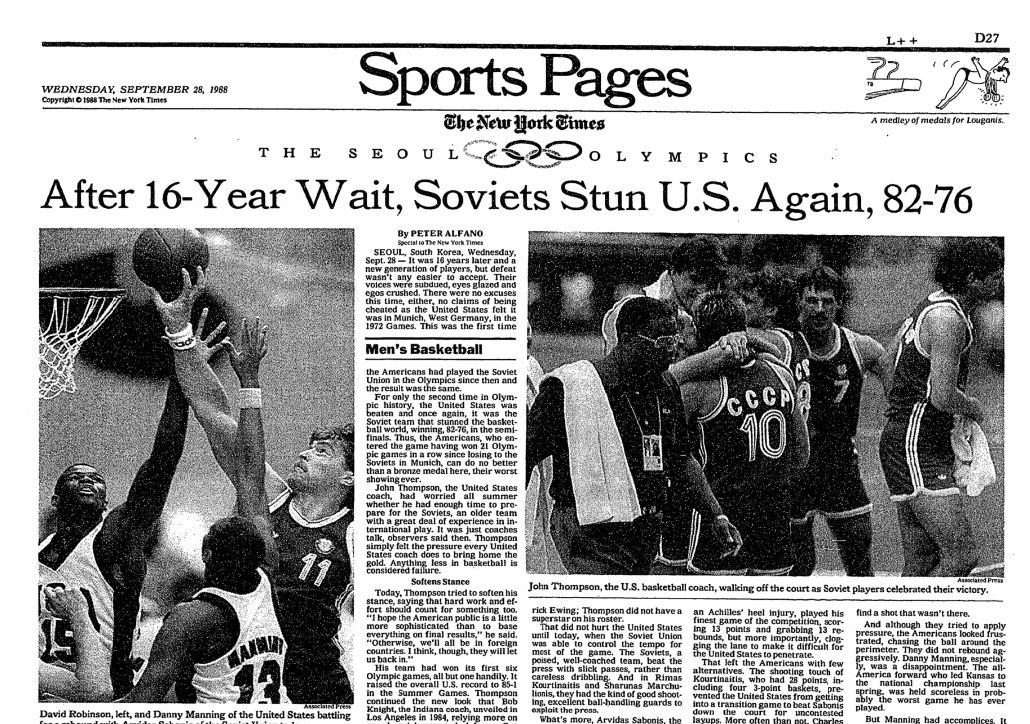
The byline from Peter Alfano's report read.
'It was 16 years later and a new generation of players, but defeat wasn't any easier to accept. Their voices were subdued, eyes glazed and egos crushed. There were no excuses this time, either, no claims of being cheated as the United States felt it was in Munich, West Germany, in the 1972 Games. This was the first time the Americans had played the Soviet Union in the Olympics since then and the result was the same.'
Interestingly enough, the US and USSR were the only Olympic teams that voted against expanding into the professional game. Detailed in McCallum's Dream Team, FIBA (International Basketball Federation) had been keen to improve international basketball standards by welcoming the best players in the world to the Olympics, those in the NBA. Despite the opposition from those notable nations, a resolution was passed, and Olympic basketball was forever changed. The focus then turned to drumming up interest in the American public for the upcoming Games. To my eye, there looks to have been a mixture of apathy and disinterest in US Olympic Basketball. Yes, they had been overwhelmingly successful, but the continued success desensitised the American public. That emotion turned to disappointment, maybe even humiliation after the defeat in Seoul.
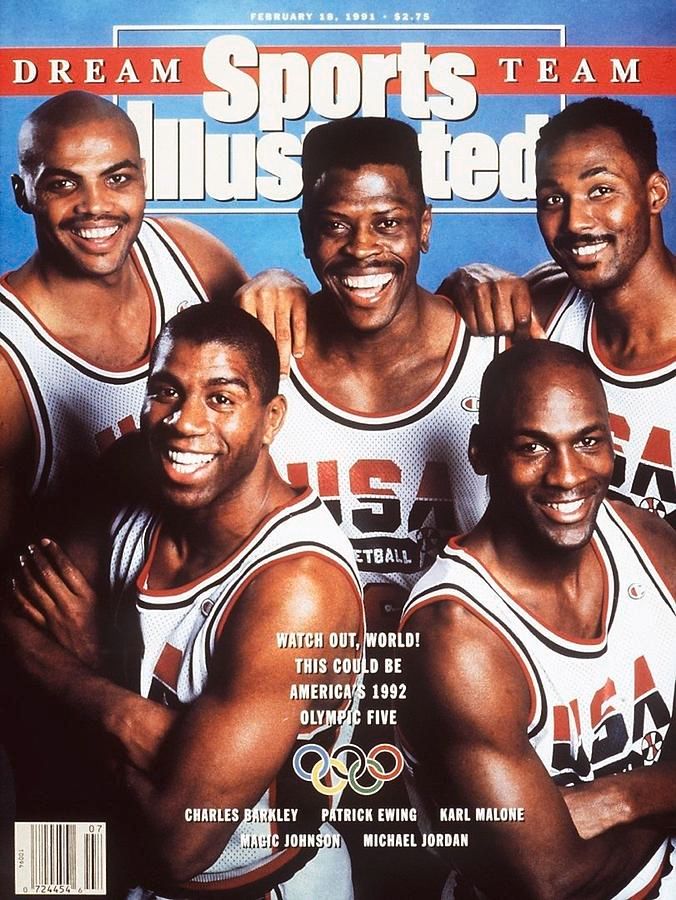
It's at this point we see McCallum's highest contribution to this story. During the 1991 Allstar weekend, a period in the basketball calendar where there is a bit of a lull in the day to day grind of reporting, he assembled the five players who graced the famous SI cover. Charles Barkley, Patrick Ewing, Karl Malone, Magic Johnson and Michael Jordan. The cover read 'Dream Team' 'Watch out, world! This could be America's 1992 Olympic five.' Could, was the critical word as so much was still up in the air. Magic only agreed to participate in the photo once he had been given assurances his eternal buddy, Larry Bird, would not be going. Barkley was far from guaranteed a place, and David Robinson, who had played in Seoul and was All-NBA First Team in 1991, could easily have been installed ahead of fellow centre Patrick Ewing. But the cover did what was expected; it got people talking, it got people excited at the prospect of their favourite players competing for their country on the world stage.
After months of discussions and rangling with the NBA commissioner, David Stern, and negotiations around image rights, pay and sponsorships, the team started to take shape. Naturally, the leaders and official co-captains were Bird and Magic. Forever connected in Basketball history, their 80s rivalry with the Celtics and Lakers basically saved the sport. Both were older statesmen by this time, paving the way for Jordan, who was embarking on his first championship with the Bulls. For Bird and Magic, their participation was less than assured. Bird had had enough of the pain; the 1990/91 campaign was spent contemplating retirement, the ageing great suffered from a chronic back injury. Having initially stated he would not go to Barcelona if injury-stricken, thus denying another player a chance to represent the US at the Olympics, he was eventually persuaded to come on board. Larry's experience, quiet confidence and exalted position in basketball's pantheon of greats made him an obvious choice to lead in the background. The frontman was, of course, Magic. The man who was the face of the showtime Lakers, Magic's stay on the earth, let alone on this Olympic team, came into doubt only eight months after that cover debuted.
At The Forum on 7th November 1991, Earvin Magic Johnson stood on stage. He was flanked by Lakers owner Jerry Buss, NBA commissioner David Stern, Lakers teammate Kareem Abdul Jabbar, and, most devastatingly, his wife, Cookie. In a tense and packed briefing room, he seemed calm, his infectious smile still present on his face; he paused before delivering the kicker.
"Because of the, erm, the HIV virus that I have, obtained I will have to retire from the Lakers, today."
The Knicks, then coached by former Lakers coach Pat Riley, held a minute silence and then shared the lord's prayer before their game against the Orlando Magic that night. President, George H Bush, described it as a tragedy. His jersey was even retired by the lakers in February of 1992; of course, Larry Bird was part of the presentation. It really was devastating news for everyone. Not only had the NBA lost one of its biggest stars, but as the commissioner would later admit, the primary concern was that Magic would not go on living very much longer. Thankfully, at least in developed nations, we live in a world where we no longer see HIV diagnoses as a death sentence. That was very different in 1991.
As Elisabeth Glaser, HIV/AIDS activist, who tragically contracted the illness from a blood transfusion while giving birth, said,
"Before he came out and shared with the world his [Johnson] medical reality, a lot of people didn't feel like they knew anyone who had HIV. Everyone knows Earvin Johnson, and now everyone knows someone who has HIV because of him."
Magic credits Glaser's influence in seeing him through. Elisabeth had lost a child, a husband, and would later die herself from HIV/AIDS; she tasked him with being the face of the disease, improving public knowledge and increasing funding that would go eradicating its devastating impact. And that's what he did. Magic enlisted the help of the worlds leading AIDS researcher, Dr David Ho, and his own dedicated medic, Dr Michael Mellman, pioneering research that would save his life and the lives of many more. With a Dream Team of his own, he remarkably returned, 94 days after his announcement, to the previously mentioned AllStar game in 1992. The occasion was showered in his magic. At the home of the Magic in Orlando, Johnson played the second-most minutes, scored the most points, delivered the most assists, and won the All-Star MVP. In just over three months, he had resumed training and improved his diet; So, after some conversations around players' safety', Magic was, although still officially retired, back to lead the team in the Olympics.
Despite the reverence and respect, the players had for Bird and Magic, it was pretty clear to all who the 'actual' leader of the Dream Team was. MJ. What more can be said about the man? All I'll provide is some context on where he was in 1992. Newly crowned champion, 3-time MVP, DPOY, we could go on, but basically, he was the biggest player in the world, approaching his status as the biggest sports person on the planet.
Knicks centre and Dream Team teammate, Patrick Ewing, left little doubt of where power lay.
"Michael was the leader, even though Magic said all the things, you know Michael's Michael."
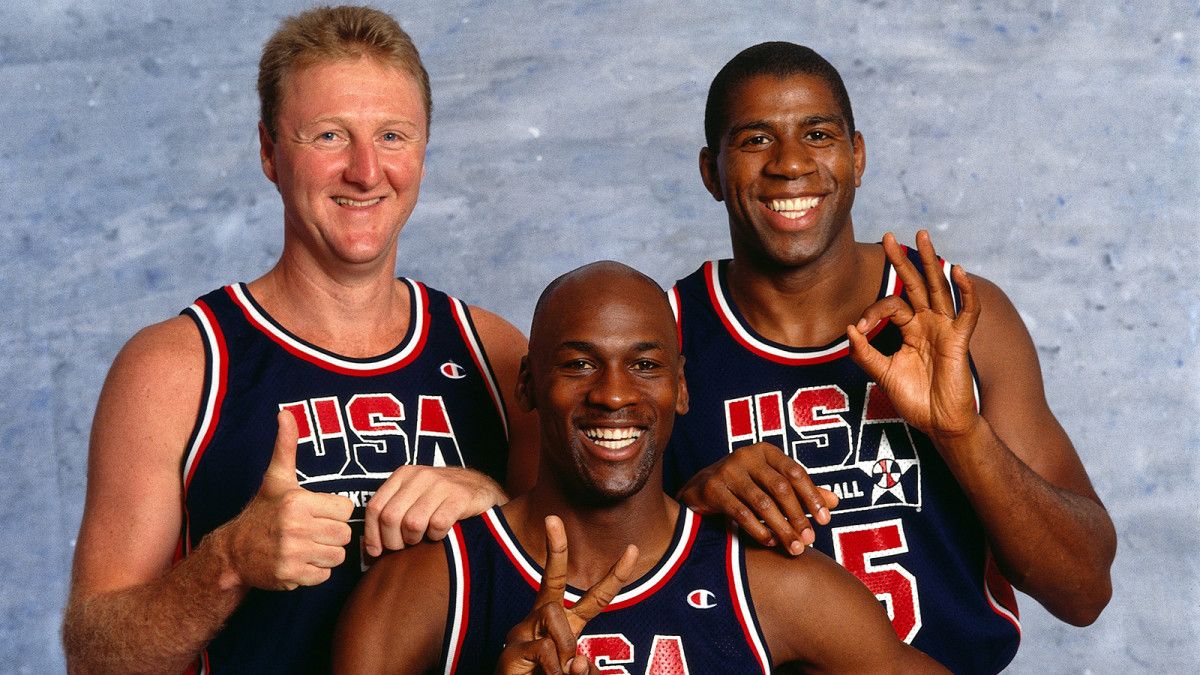
This takes us nicely to the 'game that no one saw' well, the 'game that no one saw before The Last Dance came out'. Finishing third in Seoul meant the US had to qualify for the finals. The Tournament of the Americas started late June in Portland, two weeks after Jordan's Bulls had beaten the Trailblazers in the NBA finals. Obviously, the US brushed aside the competition, thrashing Venezuela in the final and they were crowned champions. With only three weeks before the Games, the team headed to Monte Carlo for more preparation before Barcelona. They included Magic Johnson, Larry Bird, Michael Jordan, Charles Barkley, Karl Malone, Scottie Pippen, John Stockton, Patrick Ewing, David Robinson, Clyde Drexler, Chris Mullins, and the only collegiate player Christian Laettner. I mean, nobody stood a chance! Isiah Thomas was the most notable absence, but that's an affair well-told elsewhere.
Monaco, it turned out, might not have been the best place to prepare - you know, with all the casinos, golf courses, parties, etc. After a lacklustre performance against France, coach Chuck Daley, who led the 'Bad Boy' Pistons to back to back titles in 1989 and 1990, decided an inter-squad scrimmage would increase the intensity. In my opinion, the teams were pretty uneven, but most importantly, Magic and Jordan were on opposing sides. It's crucial because the scrimmage brought the tension between the two to the fore. Jordan can be heard saying, 'this isn't the 80s anymore; this is the 90s'. Magic responded with his own taunts. Bird had accepted his time was coming to an end; Magic took a bit longer to process. Jordan wasn't particularly gracious, to be fair to him, yanking the proverbial baton before Magic was ready to pass it on.
There was no such ambiguity in the leadership of the Barcelona team of the late 80s early 90s. Johan Cruyff. A phenomenal player in his day, arguably the greatest European player of all time, although Cristiano Ronaldo will have a few words to say about that. Known for his intelligence and obsession with angles, he first made his name with his hometown club Ajax. Growing up in Amsterdam in the shadow of De Meer, his prodigious talent was appreciated instantly. At the age of 17, he made his debut under the tutelage of manager Rinus Michels, who we'll speak about later. This Ajax team would dominate Europe, with a transformative style, winning 3 European Cups in 3 years, unheard of for what was initially a semi-professional club.
Then comes his Barcelona connection. In 1973, Michels, the manager again, the European player of the year, the best player in the world, signed with the Catalan club. At that time, Barcelona were a big team without the silverware to prove it; without a league title in 14 years, they pinned their hopes on his arrival. Cruyff did not disappoint; his team secured the La Liga title in his debut season. The second El Classico of that season, always a landmark game, was a highwater mark. At the Bernabeu, with Cruyff at the heart of the play, they demolished their rivals, scoring 5 unanswered goals.
For all of Cruff's successes, his manager at the start of his Ajax journey at Barcelona and for several years with the Dutch national team was Rinus Michels. Michels, whose footballing philosophy was greatly influenced by English managers Vick Buckingham and Jack Reynolds, had a scholarly approach to the game. The former player and PE teacher birthed a style of football that would eventually become known as Total Football. His two tenants were space and positions, which he drilled into his players to create baffling attacking moves and stifling defensive play. Before making a career as a footballer with Ajax, Michels also played basketball and was a member of Ajax's basketball club. Outlined in Dutch Author Bert Hiddema's biography, Michels was a very good basketball player. His appreciation for the game influenced his footballing ideals. Guards pressing their opposite number, man to man, turned into strikers used as the first line of defence, pressing defenders in possession high up the pitch.
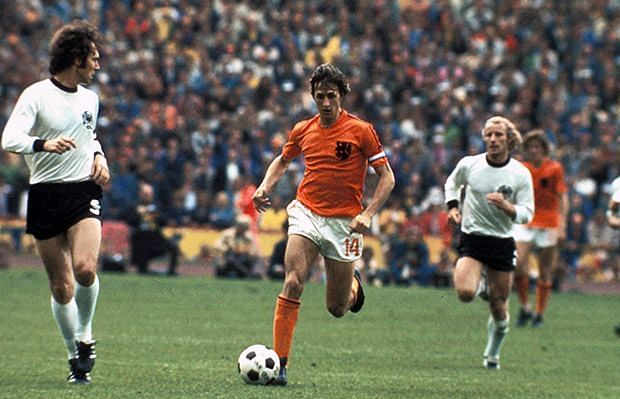
After triumphs with Ajax and Barcelona, Michels would lead his country, with Cruyff never far behind, to the 1974 World Cup in West Germany. It's here that Total Football gained global acclaim; it's here where Cruyff was further immortalised in footballing folklore. In the Netherlands second game against Sweden, Johan Cruyff received a long pass from midfielder Haan. After getting the ball under control, with his back to goal and the defender basically in his shorts, he was so tight behind him. Cruyff feinted to cross before spinning while dragging the ball behind him into space, which had been vacated by the bewildered Swedish defender. Before he could process what the hell had happened, Cruyff was a full stride and half beyond him. The Cruyff turn was born. However, despite some incredible displays, chiefly against defending champions Brazil, where Cruyff scored a beautiful volley, the Netherlands world cup campaign ended in heartbreak. Having taken an early lead in the final against their hosts and arch-rivals, West Germany, their overconfidence got the better of them, and they succumbed to two West German goals from Paul Breitner and Gerd Muller to finish as runners up.
Following spells in the US and then back at Ajax and Feyenoord, Cruyff retired in 1984. He was not away for long! First managing Ajax in 1985, where he won the European Cup Winners Cup. Then in 1988, Cruyff returned to his second home, which required his restorative abilities. Much of what we understand modern Barcelona to be, finds its roots in Johan Cruyff. As Guardiola put it, in his 2016 interview with Donald McRae of the Guardian,
"Before he came, we didn't have a cathedral of football, this beautiful church, at Barcelona. We needed something new. And now it is something that has lasted. It was built by one man, by Johan Cruyff, stone by stone. That's why he was special."
In this regard, he is akin to Bill Shankly, managers who so transformed their clubs, that to modern eyes, we assume they have always been as they appear to be today.
This beautiful footballing cathedral that Guardiola speaks of is a wonderful metaphor for the playing style Cruyff championed. So ingrained is this system that it is basically unacceptable for a Barcelona manager to deviate from it, as former manager and fellow Cruyff disciple Ernesto Valverde discovered in 2018. Being a student of Michels, Cruyff's philosophy built on what has already been discussed; his evolution came with his obsession with angles. In attack, Barcelona would progress through the lines by forming a series of triangles in possession. Like with Total Football, movement and positional awareness were vital. For example, if a player is closed down and makes a pass, their next action would be to find space to receive the ball again from their teammate, who, in turn, would redeploy themselves to another position in space if the pass is required and so on and so on. Redeployment at an angle is crucial as it gives the ball carrier at least two passing options. At its best, this system creates a fluid quasi-positionless shape that is incredibly difficult to stop. Barca would often set up in a 3-4-3, or a 4-3-3, always with three midfielders consisting of a deep-lying pivot - Guardiola. Cruyff would have two wide centre backs in a three-man defence who would be quick to cover ground, protecting a deeper sweeper or libero, who would hit long passes to the wide forwards - Koeman. In attack, the central striker would drop deep to draw the opposition defenders out of position - Laudrup, allowing the wide forwards' space to run in behind - Stoichkov. When defending, it was about reducing space; Cruyff's men would press their opponents high, attempting to contain them in a smaller portion of the pitch, engaging further away from their goal. The excellence of Cruyff's team was not in the superstar roster they had at their disposal, although their squad did contain some of European football's all-time greats, but in their revolutionary style of play.
Barcelona finished the 1987/88 season in lowly 6th place. In the Dutchman's first full season, their resurgence was immediate, ending that campaign as runners up to Real Madrid but winning the European Cup Winners Cup against Sampdoria. A disappointing 3rd placed finish in 1989/90 was soothed slightly by their victory over Madrid in the Copa del Rey final, but it is the 1990/91 season when their domination began. Previous seasons had seen the additions of Dutch defender Ronald Koeman, midfielders, Bakero and Goikoetxea, forwards, Begiristain, Laudrup and Hristo Stoichkov, as well as the promotions of Albert Ferrer and Guardiola from Barcelona B. A new team, now entirely in the image of their manager. In that season, Barcelona claimed their first league title in 6 years, finishing a full 10 points clear of nearest challengers, Atletico, in the old 2 points system. The defence of their title in the 1991/92 season got off to an awful start; after losing 3 of their first 5 games, they were 5 points behind Madrid in what was to be a legacy-defining year at home and on the continent.
Like with any Olympic host city, Barcelona was abuzz. The Games were opened by King Carlos I on 25th July 1992 with the art and flair the city is known for. The transmission of the opening ceremony began, fittingly, with Barcelona, Freddie Mercury's majestic operatic duo with Barca born Montserrat Caballe. The visuals swept us through the landmarks of the Catalan capital as Mercury's falsetto rang through. After some classic opening ceremony lyrical dance numbers and colourful costumes, we were finally introduced to our athletes, and besides the Spanish Olympic team, the loudest cheer went to Team USA. The cameraman transfixed at the sight of NBA stars David Robinson, Chris Mullins, and Magic.
When the US Men's basketball team arrived in Barcelona, the scenes resembled the Beatles in 1964 or Trump at a rally in Alabama. They were undoubtedly the biggest stars in Barcelona, upstaging fellow American, Carl Lewis who was the defending 100m champion. Due to their status and the associated security risk, the US Olympic committee felt it best to house the team outside the Olympic village instead, placing them in the Ambassador Hotel, which had superior security credentials. Predictably, on the court, the team destroyed all who were unfortunate enough to find themselves in their path finishing the group stage with a perfect record and an obscene points differential of +229! For context, Lithuania, who look back on their team of 1992 as their own Dream Team, had the second-best PD in the group stage, +57. Like Thanos, they were inevitable. After dispatching Puerto Rico and Lithuania in the quarter and semi-finals, 115-77 and 127-76, their shot at redemption came against Croatia in the gold medal match on 8th August.
By contrast, by the time the Olympics had opened in Barcelona, the football team had already completed their historic season. Still, as New Years Eve 1991 turned to 1st January 1992, they had plenty of work to make the future come to pass. After hitting a rich vein of form toward the end of the previous calendar year, Barca continued their momentum, only stumbling away to Sociedad in February. However, a more patchy run of form was to follow; 8 wins, 5 draws, and 2 defeats in 15 matches left them 2 points behind rivals Madrid going into the final La Liga match day. The European Cup, on the other hand, provided much more optimism. Now 5 times winners, before 1992 Barcelona had never won the premier European competition. The ever-changing format was slightly different, so after triumphing over German opposition in the first two rounds, they entered a group with Sparta Prague, Benfica, and Dynamo Kyiv. The winner progressed through to the final. Cruyff's men tuned up in their European ties, winning all their home games and beating Dynamo in Kyiv. After a 2-1 victory at home to Benfica, they sealed their spot in the final against 1990/91 Serie A champions Sampdoria with deadly duo Roberto Mancini and Gianluca Vialli.
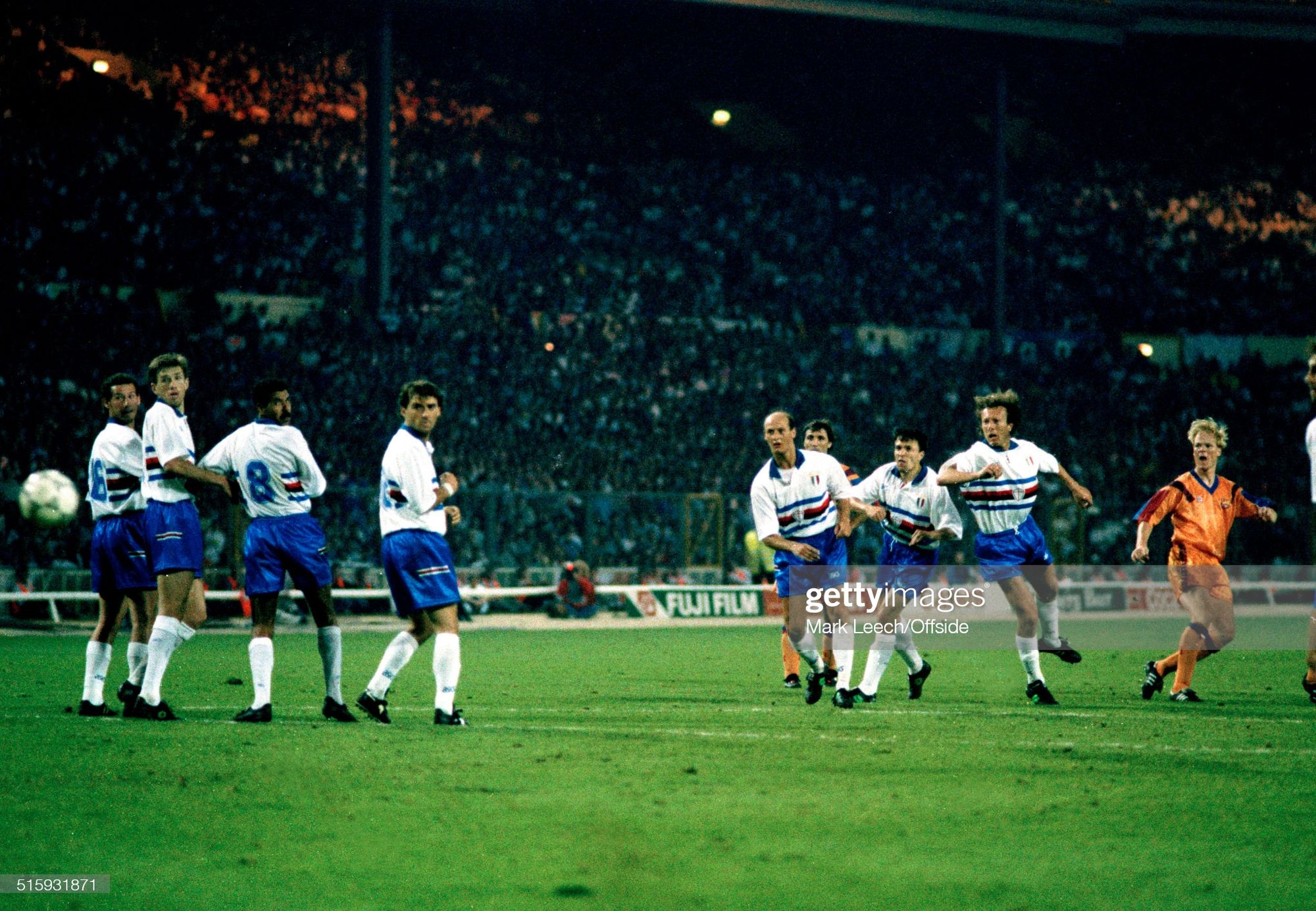
So our two Dream Teams were all set for their dates with destiny. Cruyff's men took to the field on 20th May 1992 in front of 71,000 spectators at Wembley, deploying their trademark 3-4-3 formation. There were a few chances for either side in regular time, both Zubizarreta and Pagliuca forced into decent saves. The Catalans best opportunities to break the deadlock came first from Salinas, whose effort was palmed away by Pagliuca after some superb close control. But it was Stoichkov who came closest. After being put through with a glorious pass from Laudrup, Stoichkov's strike hit the foot of the Sampdoria goal and bounced clear. For the Italian side, it was Vialli who was culpable. I can't put it any better than he did in an interview with UEFA.com in 2011.
"I had three really good chances to score and I could have been more clinical. I was unlucky with one chance, then [Andoni] Zubizarreta made a great save. I should have been more clinical with the third, but that's how it goes. With a bit more luck history could have been different, but we were up against a fantastic opponent."
The game finished 0-0 after 90 and continued into an even more tense extra period. But then, from a pretty dubious freekick, Koeman stepped up to lash his shot into the corner of the net with only 8 minutes to play. With Samp desperate for an equaliser, Barca had a couple of opportunities to make the scoreline more comfortable. Still, finally, after nearly a century in existence, Barcelona had become European champions!
The Olympic basketball final was different. The Croatians, who had current and future NBA players such as Petrovic, Radja, Vrankovic, Tabak, and Michael Jordan's future Bulls teammate, Toni Kukoc, put up a fight in spells. But Barkley's layup straight from a Robinson tip kind of signposted the direction of this one from the off. The US, whose starting five consisted of Pippen, Jordan, Robinson, Barkley, and Magic, held the lead for most of the first half – well, most of the game, to be honest – but the Croatians in Petrovic and Kukoc held their own in the first half especially. Magic delivered a few trademark plays, namely an attack where he drove at the Croatian defence, rose for a layup but instead dished it off to Pippen to slam home. But it was from the arrival of Malone that the US started to pull away. After a few dunks from himself and Drexler, the team were up 38-17 with 6 minutes to play in the first. The play of the first half went to Pippen, who was great throughout. From Jordan's block, he drove at the solitary Croatian defender. With Mullins joining the attack on his left, Pippen motioned to make the pass, lifting the ball in his direction. Before it could leave his orbit, and before the defender knew what was going on, he reclaimed it and rose for a layup in front of a jubilant crowd. The second half was more of the same. There were a couple of cameos from Bird, who spent most of the game prone, on the floor, in front of the bench; his back too sore to abide sitting. Add in Jordan, who had warmed up, Barkley powering in with rebounds and put-backs, and after more fast breaks and demoralising dunks, they led 84-42 with 8:36 minutes left to play. But to their credit, the Croatian's rallied again; enjoying a 14-4 run heading into the final 4 minutes of the tie. That flurry woke up the Americans, and after more Barkley dunks and put-backs, they restored their 30 point lead with a minute to go. The final score read: Croatia 85, USA 117 - this was their closest game. Another mauling by the Dream Team!
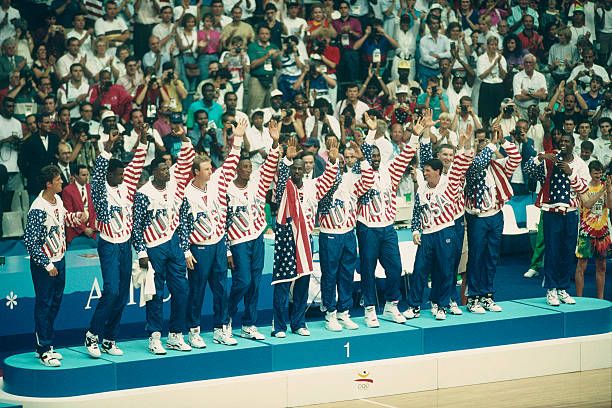
On their way to US Basketball's 10th gold medal, the Dream Team averaged 117.3 points per game, they led their opponents for 307 of the 320 minutes they played in total, and coach Daley didn't feel the need to call a single timeout - yes, in the whole tournament. Skip Myslenski, Chicago Tribune 1992.
"Everyone called it the Dream Team, and the name was as apt as any. It claimed the gold medal Saturday with a 117-85 victory over Croatia. It was historic, the first US Olympic basketball team to feature NBA players. It was talented, a collection of the finest players from the finest basketball league in the world. And it was fairly radiant, a traveling circus of stars that attracted attention wherever it set down."
For Barca, their historic season was not over. The final La Liga matchday came after their maiden European Cup triumph, and as previously mentioned, they started play with a 2-point deficit from rivals Real Madrid. The leaders were away to islanders, Tenerife, while Barca faced Athletic Bilbao at the Camp Nou, knowing a win for Madrid would leave the result in Catalonia irrelevant. Real seemed to have it all under control, scoring two goals in the first half an hour, courtesy of Fernando Hierro and a Gheorghe Hagi freekick. After Quique Estebaranz's wonderful dribble, where he evaded three Madrid defenders and drove his low shot past Buyo, Tenerife were back in the game, but few could predict the climax.
Meanwhile, in Barcelona, Stoichkov's two headers had given the Catalan side a commanding advantage on either side of the halftime break. For Madrid, two defining moments changed their afternoon. First, they had a perfectly good goal disallowed for offside; not long after, they were down to ten men when defender Villarroya picked up his second yellow card with 20 minutes to play. Tenerife managed to pull themselves level seven minutes later when Madrids, Richardo Rocha failed to clear from under the goal line and slashed his clearance into his own net. Not a minute later, their nightmare was complete. Under pressure, Rocha attempted to play a pass back to his keeper. His inadvertent lob either struck the woodwork or was saved by Buyo – it's hard to make it in the grainy footage. Either way, the ball fell to Pier Loggi, who completed the Tenerife comeback. To compound things for Real, they had two glorious chances to equalise; Madrid legend, Butragueno, squandered both 1v1 opportunities.
When the final whistle blew, there were celebrations in Tenerife and, more importantly for our story, in Barcelona. Cruyff's men paraded their newly attained European Cup to add to the La Liga title they had just dramatically retained. Unbelievably, the same scenario played out a year later. Again Madrid travelled to Tenerife on the final day with a 2 point advantage while Barcelona played Bilbao's Basque rivals, Real Sociedad. Similarly, Madrid crumbled to a 2-0 defeat, allowing Barcelona to seal their third championship in a row with a 1 -0 victory. The Dream Team made it 4 straight titles in the 1993/94 season. Their resounding 4-0 defeat to Milan in the Champions League Final ended a remarkable era.
After failing to reach the heights of previous years and failing to adequately replace the talent he had fired after the Milan loss, Cruyff left Barcelona in 1996. He went on to manage the Catalonia national team thirteen years later before eventually retiring in 2013. Sadly, Johan Cruyff lost his battle with cancer in 2016 at the age of 68; the outpouring from the footballing world paid testament to his lasting influence on the game.
The legacy of these two great teams is evident. US Men's Basketball team of 1992 had a massive impact on basketball globally. In that year, only 23 international players could be found on NBA rosters; today, that figure stands at 107 from 41 countries. The globalisation of the NBA we see today owes a considerable debt of gratitude to their success. The team spawned others like Dream Team II, which included new faces like Shaq and Reggie Miller or the even more decorated, Redeem Team, with Kobe, LeBron, Chris Paul, and Carmelo. The legacy of Cruyff's team is similarly in its progeny. Pep's Barcelona, who I have constantly referenced throughout, actually eclipsed this 1992 edition. But as Guardiola says in his own words, it would never have been possible without Cruyff and the Dream Team.
So, is it a coincidence that arguably the two greatest teams in their respective sports are connected by Barcelona and the year 1992? Almost certainly. But it's a fun quirk of history that unites these two eternal sides.
